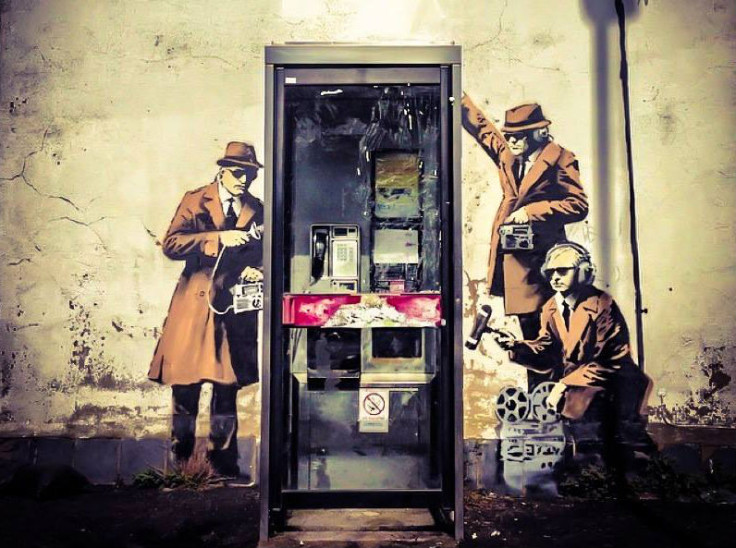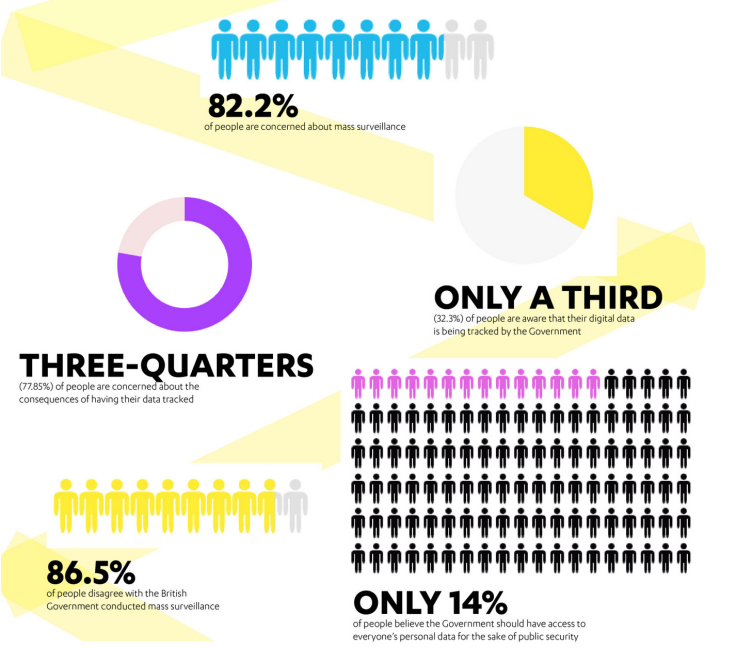Britain 'Sleepwalked' into Becoming a Mass Surveillance State

The UK has "sleepwalked" into a mass surveillance state where a huge majority of people are worried about the actions of the government but just a tiny percentage has done anything about it.
Published to coincide with the launch of Laura Poitras' documentary about Edward Snowden called Citizenfour, the report entitled "Nothing to hide, nothing to fear?" was commissioned by Finnish security firm F-Secure and focuses on the concern about surveillance being undertaken by the UK government on its own people, as well as foreign nationals.
"We are in uncharted territory and we appear to have sleepwalked here," said Allen Scott, managing director of F-Secure UK & Ireland. "Little by little, our rights to privacy have been eroded and many people don't even realise the extent to which they are being monitored. This isn't targeted surveillance of suspected criminals and terrorists – this is monitoring the lives of the population as a whole."
Concerned, but doing nothing about it

According to a survey carried out in early October, of the 2,000 UK adults questioned, an overwhelming majority of 86.5% disagree with the British government conducting mass surveillance - with over 82% saying they were concerned about it.
The problem is also one of education, with less than a third of respondents realising that the UK government is tracking their digital data.
However, despite all the media coverage of mass surveillance in the wake of the Edward Snowden leaks and the tabloid phone hacking scandals, just 3% of people in the UK have taken any practical steps to ensure the government cannot track them.
GCHQ has "no limits"
Snowden himself addressed the issue of UK government surveillance - in particular the scope of its spying arm GCHQ - when he appeared at the Observer Ideas festival earlier this month.
Snowden said there are "really no limits" to the GCHQ's surveillance capabilities, adding:
"In the UK... is the system of regulation where anything goes. They collect everything that might be interesting. It's up to the government to justify why it needs this. It's not up to you to justify why it doesn't... This is where the danger is, when we think about... evidence being gathered against us but we don't have the opportunity to challenge that in courts. It undermines the entire system of justice."
Highlighting the rapid increase in data collection about private individuals by companies and state agencies, Privacy International's founder Simon Davies updated research he carried out a decade ago on the number of databases in which a typical person has their information held.
In 2004 it was estimated to be around 70. In 2014, Davies estimates this number has increased tenfold to 700.
It's getting worse
This is only set to increase during the final months of 2014 when the National Health Service (NHS) rolls out its Care Data programme that will collate intimate, confidential, lifelong health care details of each patient - identified by NHS number - and store it with the new Health and Social Care Information Centre (HSCIC).
While the NHS claims it will provide better care for patients, critics have warned it could lead to major problem relating to a person's privacy and even their identity.
Graham Stringer MP, a member of the Science and Technology Committee overseeing the Digital by Default programme, told researchers:
"There are two big risks as far as security is concerned. One is the risk to the whole system – whether it's medical records, National Insurance records – anything where they access public services – could be stolen and used for illegal purposes or for commercial benefit.
"It's very difficult when you've got an open system to keep it really secure. Secondly there is the possibility of ID theft and there is also the difficulty in establishing a person's identity within the system – so those are all problems that have to be overcome."
© Copyright IBTimes 2024. All rights reserved.






